Film and Media
Blend the power of media and the magic of film, ready to start your career in the creative industries.
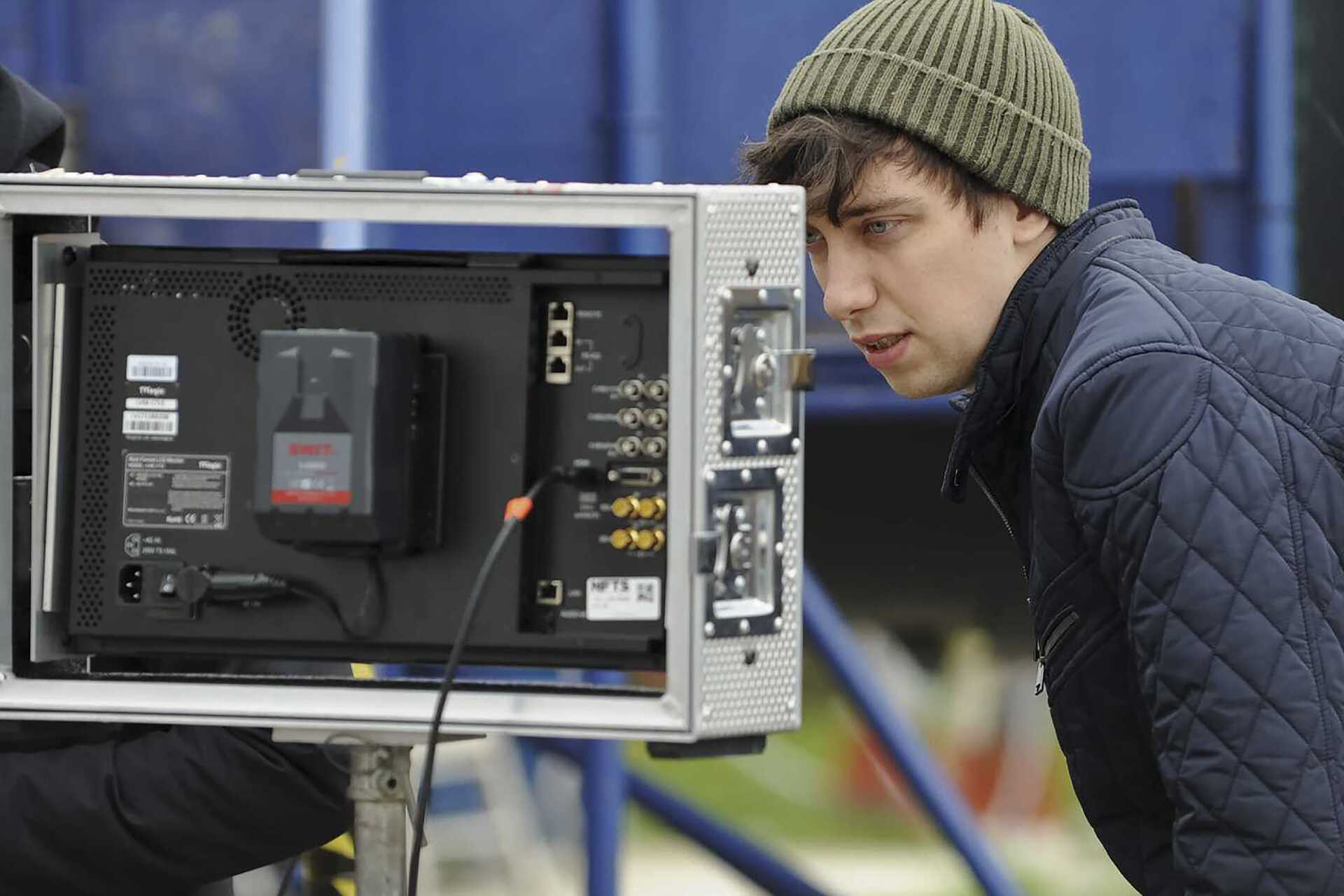
Blend the power of media and the magic of film, ready to start your career in the creative industries.
Discover the meaning of film and the message of media, on our joint honours course where the dynamic worlds of film and media meet. By studying film and media, you'll learn how these communicative forms influence us, how they can enrich our lives and how you – through creative practice and engagement with the industry – can shape them.
At the heart of our course, you'll find experienced practitioners and researchers who actively contribute to contemporary debates, appearing on national news and television. Their engagement ensures that you remain connected to the rapidly evolving industry landscape. Our wide range of modules hones your practical skills while fostering critical analysis, preparing you for a career in this ever-expanding industry.
This programme is also available with a year in industry or a year abroad. You'll gain valuable experience and explore new cultures, demonstrating to employers that you are able to communicate, adapt and succeed in new and professional environments.
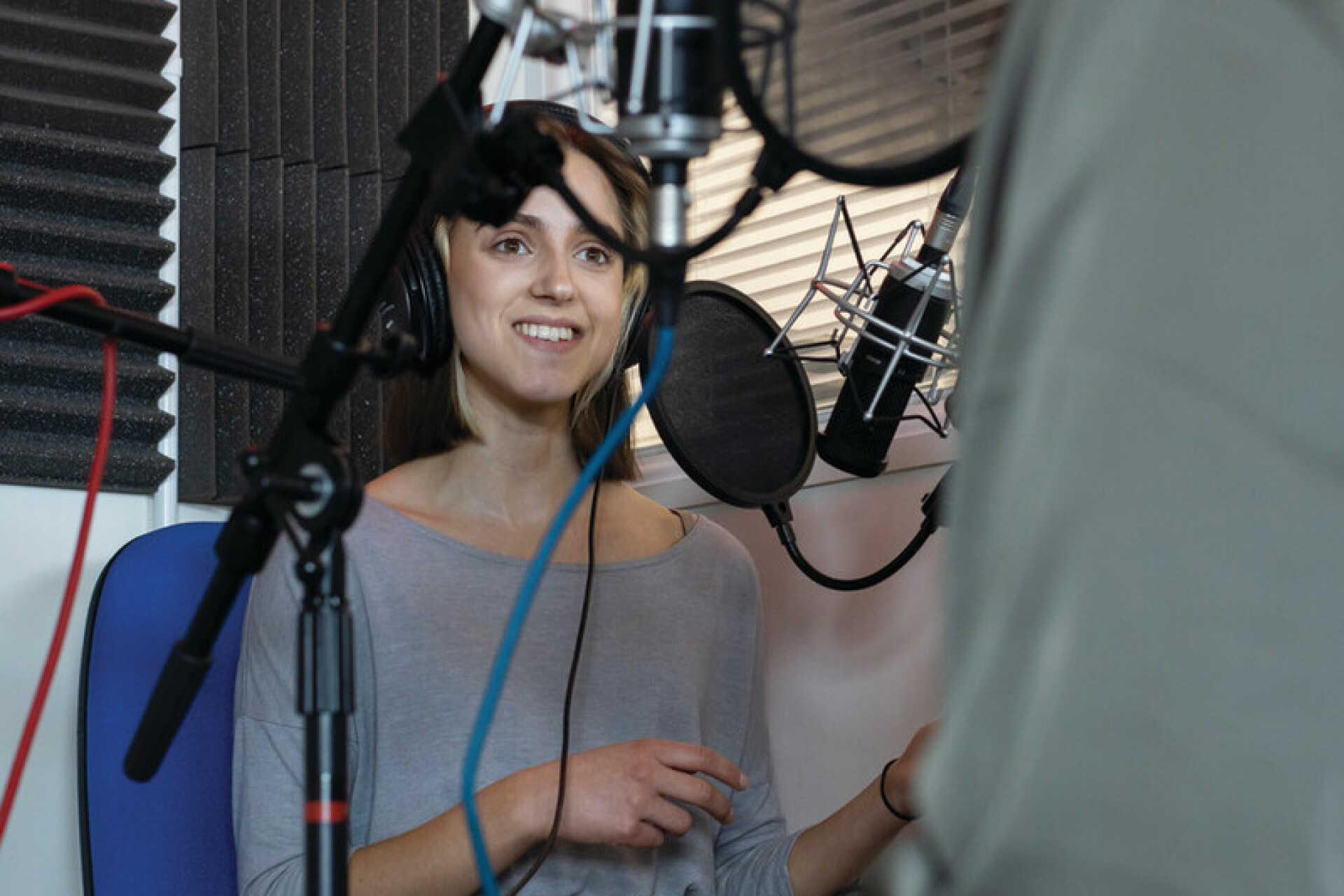
Take modules in areas such as location scouting, screenwriting, film sound, social media, podcasting or promotional media; find what interests you most.
Film at Kent scored 91% overall in the Complete University Guide 2025
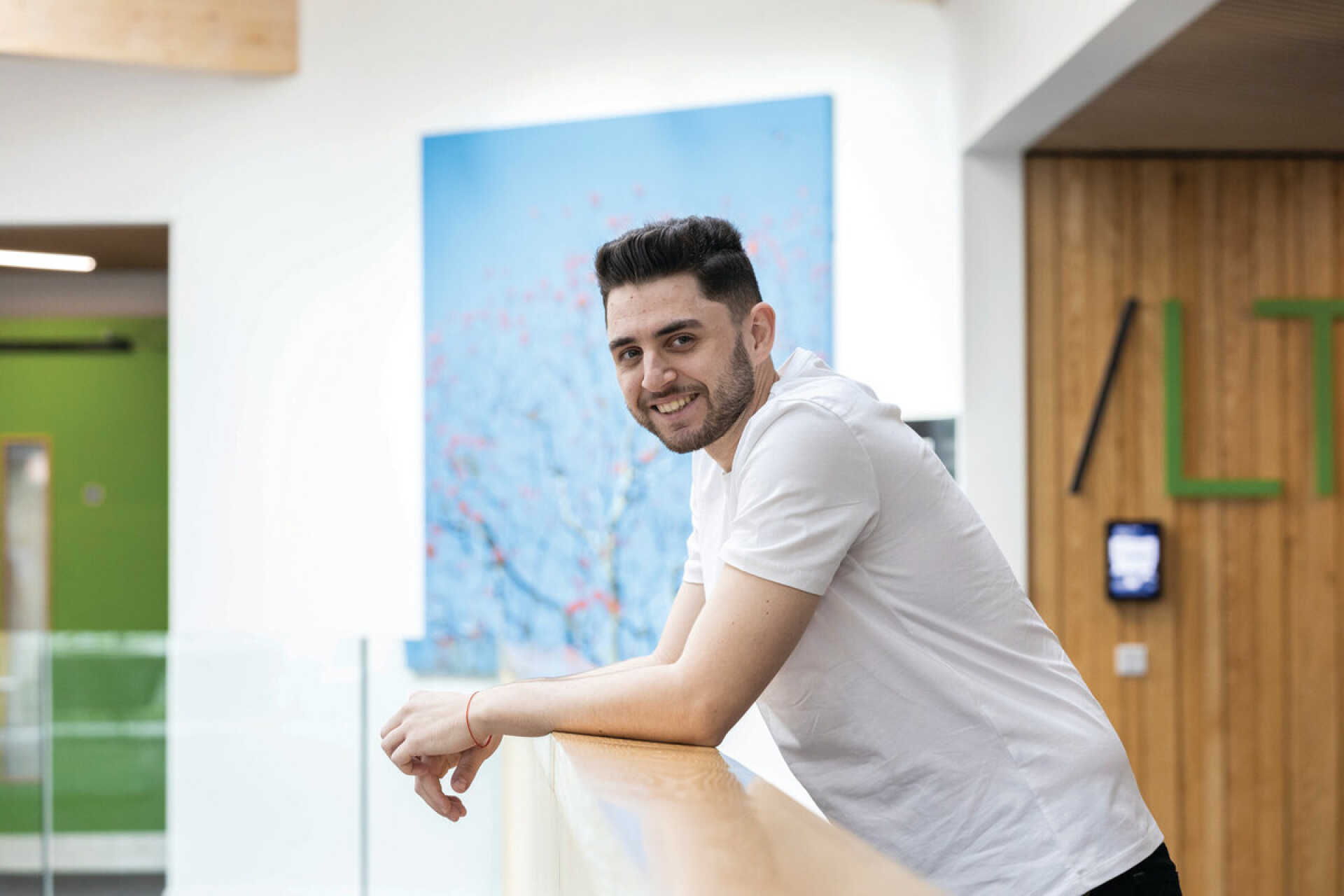
Studying film and media, allows you to examine how old and new media create meaning today and discover how you can contribute to its future.
Connect with external industry professionals via our links to the BBC, The Guardian, the British Film Institute and Arts Council England.
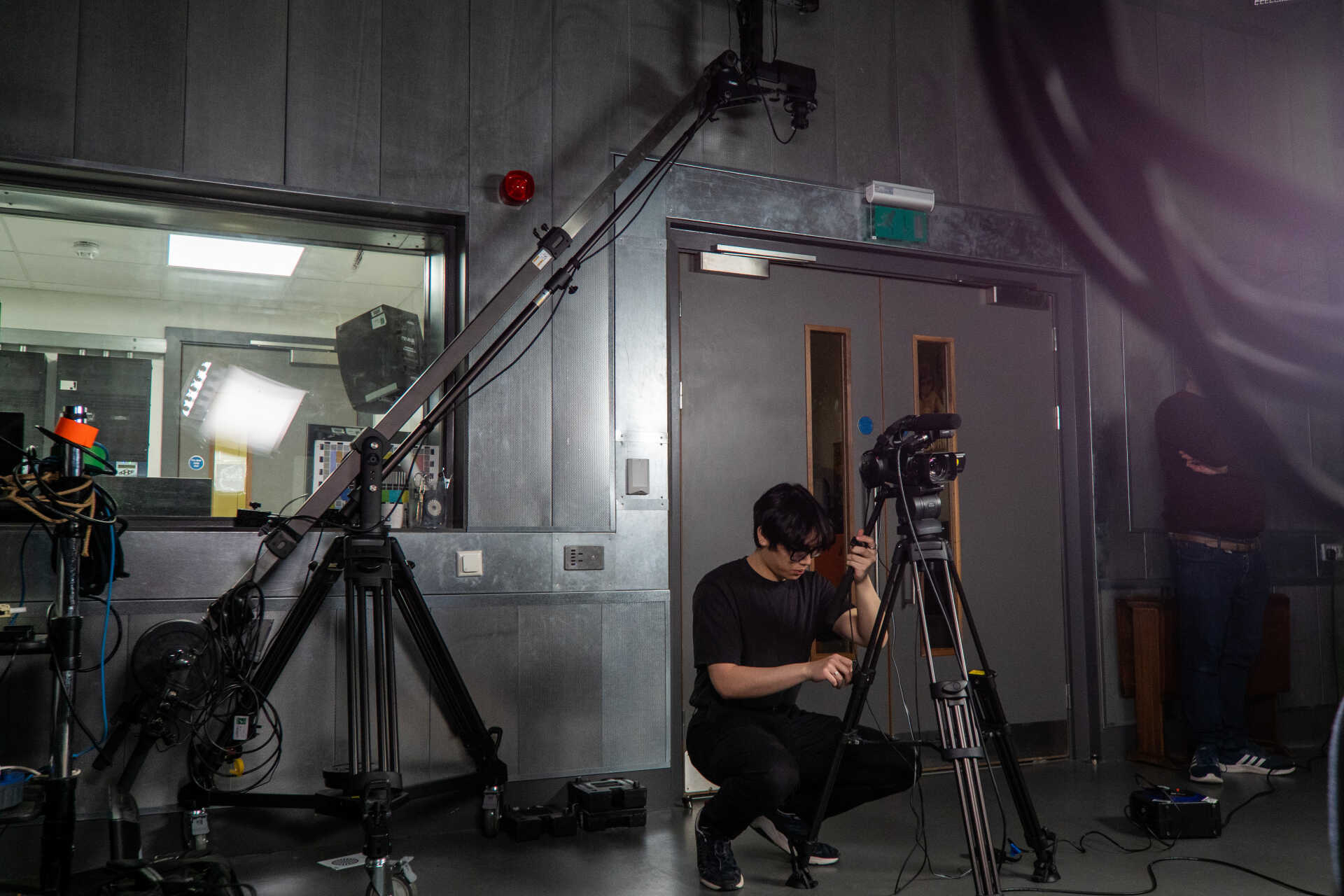
Our specialist spaces include chroma-key green screen and black serge cycloramas, an extensive lighting grid and edit suites.
Our typical offer levels are listed below and include indicative contextual offers. If you hold alternative qualifications just get in touch and we'll be glad to discuss these with you.
BBB
The University will consider applicants holding BTEC National Diploma and Extended National Diploma Qualifications (QCF; NQF; OCR) on a case-by-case basis. Please contact us for further advice on your individual circumstances. A typical offer would be to achieve DMM.
120 tariff points - typically H5 H6 H6 or equivalent.
Pass the University of Kent International Foundation Programme.
The University will consider applicants holding T level qualifications in subjects closely aligned to the course.
Obtain Access to Higher Education Diploma with 45 credits at Level 3 with 24 credits at Distinction and 21 credits at Merit.
The following modules are what students typically study, but this may change year to year in response to new developments and innovations.
What is film? What sort of questions do academics discuss in relation to this medium? You’ll engage in the systematic exploration of film offered by film theory, including competing definitions of film and discussions around what characterises the medium, how spectators engage with film, and the social, cultural, and political conditions and ideologies that film reproduces.
You’ll discuss classical and contemporary writings on film, and develop your own arguments on exemplary films to learn how each theoretical approach offers a valuable set of tools for analysing film. You’ll understand the major debates in relation to the medium, and be able to discuss these productively.
This exploration of film theory is critical to your development in the field. Whether you want to find your voice as a critic, or your vision as a filmmaker, this module is a key step in getting there.
What are the creative and cultural industries? Why are they important and what do they do? How are they funded? How do they generate and develop creative ideas and projects?
By examining real-world examples and case studies, you’ll develop your knowledge of the creative and cultural industries and how they continue to evolve in today’s digital world. You’ll explore current debates and practices within these industries by reflecting on media theory and consider how they communicate effectively.
You’ll assess and analyse current industry trends and working methods in terms of their effectiveness and how they are informed by research and theory, which will develop your critical and reflective skills. Developing your own mini-projects in response to professional briefs will allow you to begin building a creative portfolio, showcasing your knowledge and practical skills needed to work in modern creative and cultural industries.
Have you ever wanted to better understand film as a media form and learn how to make your own? Film and Media Practice #1 draws upon concepts in Film and Media Studies to introduce you to moving image production and the principles of audiovisual language.
You will develop technical skills in pre-production, production and post-production along with craft skills applicable to both narrative and experimental screen production. Through a combination of lectures, screenings, creative and technical workshops, and peer reviews of work in progress, this module encourages experimentation, critical reflection, independent thought, and dialogue between theory and practice.
Effective group work is integral to the success of your work on module. Practical work is designed to trigger both conceptual and creative thinking as well as consideration of audience responses to audiovisual language.
How do different forms of media help create and communicate meaning? This module will introduce you to a range of important media across history, ranging from traditional forms such as print, film and television, to newer forms such as the internet and user-generated content. You'll consider how the medium itself shapes the meaning of media, and how we can work within or around this relationship to create meaningful and impactful media content.
You’ll explore how media has worked as a process of transmission, shaping what stories have been told over time. You’ll also develop your understanding of everyday experiences of media as a consumer, audience member and user. By the end of the module, you’ll have the ability to critically analyse different media texts, culture and systems. This makes you a better critic of media, as well as a better creator when making your own content.
Building on the specific skills of image production you gained in Film & Media Practice 1, this module will introduce you to other kinds of digital content creation. Media content producers work with different mediums and in various communication formats. This module will expand your practice-based and technical skills so you can produce various forms of narrative-based and non-fiction creative outputs.
Such content may include documentary or factual-based entertainment, podcasts, and other forms of audio-visual formats including audiovisual essays. You’ll engage in dialogue between media theory and practice through a combination of lectures, workshops and feedback opportunities, all of which will support your development as an independent digital content creator. You'll develop the ability to be agile and have a clear voice and message across different mediums, which is vital in launching a career in the creative industries.
Filmmakers across the world continue to be inspired by old films. To create new film, knowing your history is vital. You’ll have the opportunity to explore these film connections between past and present. In carrying out this investigation, you’ll have access to primary and secondary sources held in the library. You’ll also be encouraged to evaluate the films you uncover for their aesthetic, technological, economic, social and political value.
You’ll develop an appreciation of the role and value of the contextual study of film, and you’ll have the opportunity to research and write on selected aspects of film historiography. The choice of case studies will depend on the expertise of the module convenor and is not restricted to a particular national cinema or period. Case studies may include, for example, the history of film in terms of a particular theme or cultural context. Your work around film histories will guide your development as a film maker, equipping you with the vital context of film as an art form. Your knowledge of the history of film will allow you to shape its future.
Have you got what it takes to write a film? This module offers you an introduction to the concepts, terms, and skills involved in writing screenplays and to the craft of screenwriting. Screenwriting is a unique form of writing with very different concerns from novels, theatre and radio. Although the screenplay is a vital component of a film’s success, it tends to be neglected as an art form in of itself.
In this module, you’ll explore the conventions of dramatic structure, and examine new narrative forms and short film variations. We’ll encourage you to think critically about screenwriting and you’ll have the opportunity to write your own screenplay.
We’ll take you through the writing process using a series of creative exercises, from preparation and initial concept to the final draft of a script. By the end of the module, you’ll have gained practical knowledge and have started to develop your own creative voice - and of course, a screenplay of your own.
The proliferation of mobile devices has transformed how moving images are generated and experienced. The ease with which we can now create and share images, audio and video has had a huge impact on how stories are told and films are made.
You’ll explore some of the many new forms of moving image content creation and narrative practices that have appeared as a result of this technological and cultural change, and engage with them critically and creatively. You’ll learn to master advanced video production techniques such as camerawork, lighting, editing, and sound. You’ll also produce work that engages with new narrative forms, with a particular focus on producing content for the web, such as non-linear short filmmaking, social media-based storytelling, and audiovisual essays.
Your mastery of different mediums and methods of media production gives you the agile toolset you need to thrive in the industry and make your voice heard - where that is, is up to you.
While American and European films have dominated film production and exhibition, cinema is a global phenomenon. In this module, you’ll study the historical, cultural, political and economic determinants of ‘world’ or ‘national’ cinemas and consider their influence within domestic and international contexts. You’ll look at case studies from various regions of the world including Latin America, Scandinavia, Eastern Europe, and East Asia.
The module will explore how filmmakers actively franchise, adopt, and rework film styles and genres. You’ll examine how filmmakers respond to the culture and local history of different countries, and to international influences. You’ll also explore colonial and postcolonial politics and culture. You’ll consider how filmmakers tailor their practice to the tastes and demands of local and foreign audiences and investigate the funding structures, distribution strategies and industrial structures that incentivise certain topics and representation styles.
You’ll critically assess how cinema reflects on notions of national identity, as well as gender, sexual, and racial identity. Alongside this, you’ll explore the place of marginalised and migrant communities in national identity and culture. This gives you great intercultural awareness and understanding, helping you produce films as a global citizen and speak to a wider range of audiences with your work.
“A good costume, like a good symbol, should conceal as much as it reveals”. We will explore this quote from Aby Warburg through an interdisciplinary approach to the study of costume and fashion – the art that can be worn – to explore its roles in drama, film and the visual arts.
The social values encoded by clothes, their relation to class or sexual identity, will be discussed, along with how these assumptions inform the use of costume in adaptations or stagings of texts, or how they colour our view of a character, or of a director’s interpretation (for example, using deliberate anachronism).
The role of clothing and costume in the history of art will be analysed from artists’ representation of clothes, contemporary or otherwise, to their involvement in fashion design, giving you both a broad overview and deeper understanding of fashion within the arts.
How can cinemas, galleries, theatres and museums become more accessible to visitors with impairments? How is disability understood and represented in contemporary culture?
By visiting and engaging with a range of arts institutions you will identify both barriers to inclusion and how they can be removed. You will critically assess the way in which institutions respond to their context, including relevant anti-discrimination law and the history of disability. You will conduct an access audit and review of a venue, gaining valuable training for anyone looking to work as an access officer in an arts, education or heritage context, or who wants to run events that are as accessible as possible.
Beyond this, you’ll be able to apply knowledge of accessibility and the history of disability rights and legislation to a range of work in the arts and heritage, education, community or charity sectors.
How does art impact us the way that it does? And how do interdisciplinary researchers use the impact of art to improve people’s lives?
You will explore these questions through investigating theoretical ideas and research on the ways art is created, perceived, and applied. By studying empirical research on visual arts (painting, architecture, popular art), performing arts (dance and theatre), music, and film, you will gain knowledge about aesthetic perception, emotion and meaning in art, creativity, social and cultural influences on art, and the practices and ramifications of arts-sciences research.
By exploring a subfield of the arts and sciences of your choice, you’ll develop interdisciplinary literacy that has a wide range of applications beyond the module while also being able to follow your passions and carve out a niche. The primary focus will be on Western art forms, though other world art traditions and aesthetics will also be discussed.
Do you want to explore diverse schools, techniques, and methods of cinematography, from classical to contemporary approaches?
Through a blend of theoretical studies and practical exercises and assessments, you will analyse the role of cinematography in shaping narrative, mood, and audience perception. Hands-on experiences allow you to apply learned concepts while honing your technical skills behind the camera. From framing and lighting to camera movement and frame composition, you will gain a comprehensive understanding of the visual language of film and cinema.
You will emerge with a refined ability to craft compelling visual narratives and a deeper understanding of the integral role of cinematography in filmmaking.
Cinema has typically been regarded as a visual phenomenon – films, it is often said, are essentially moving pictures. Sound has, nevertheless, played an important role from the beginnings of cinema, a fact which has been acknowledged in the detailed historical, theoretical, and critical work on film music, and film sound more generally, produced over the past quarter-century.
Sound, Music, and Cinema will provide an overview of this field of research and provide you with a clearer understanding of, and greater sensitivity to, the soundtrack. You will be given an introductory framework for understanding sound, which may include topics such as the relationship between music and other aspects of film sound (speech, ambient sound, sound effects), as well as the nature of the relationship between sound and image.
Subsequent sessions will consider topics such as: the evolution of sound technology and its impact on the aural aesthetics of film; the use of classical and popular music in film scores; the emergence of the ‘sound designer’ in contemporary cinema; and the distinctive and innovative use of sound and music by a range of cinematic 'sound stylists'.
The video games industry is the biggest entertainment industry in the world, with Rockstar Games’ Grand Theft Auto V the most successful entertainment product of all time. But how well do we understand that industry? Why do so many people play games, and what effect has video gaming had on our lives?
You will explore the history, technological development, and social issues surrounding video gaming. We will cover the technological and industrial advances in game design over the past 50 years, as well as how video games have been presented in contemporary marketing and modern media.
This will likely be your first exploration into the field of game studies (including game theory), and how it can help us understand different game genres, game mechanics, and game content. Across the module, you will learn about intersecting questions of narrative, interactivity, space, play, players, and representation. This is your chance to level-up your skillset and make rapid progress in an expanding and exciting industry.
The year in industry takes place between your second and final year. It is a great opportunity to gain workplace experience, increase your professional contacts and acquire new skills, and is a valuable addition to your CV.
You can take the year in industry in the UK or abroad with a wide range of employers in areas including the arts, education and cultural heritage. While you are responsible for finding your placement, we offer support and guidance through the application process.
Tuition fees for the placement year are greatly reduced and employers may offer expenses or a salary.
The year in industry is assessed on a pass/fail basis and does not count towards your final degree classification.
What could you do in a year?My year in industry couldn’t have gone better. I secured a role at IBM, working in their sports and entertainment department – it was perfect for meTom Tillin Find out more
Going abroad as part of your degree is an amazing experience and a chance to develop personally, academically and professionally. You experience a different culture, gain a new academic perspective, establish international contacts and enhance your employability.
All students within the Division of Arts and Humanities can apply to spend a Term or Year Abroad as part of their degree at one of our partner universities in North America, Asia or Europe. You are expected to adhere to any progression requirements in Stage 1 and Stage 2 to proceed to the Term or Year Abroad.
The Term or Year abroad is assessed on a pass/fail basis and will not count towards your final degree classification. Places and destination are subject to availability, language and degree programme. To find out more, please see Go Abroad.
Where could you go in a year?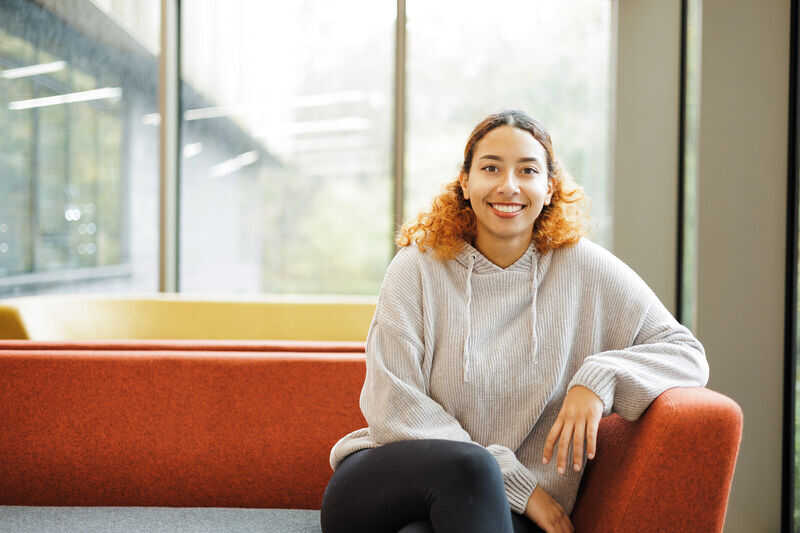
My ‘You only live once’ decision to study in Japan is one of the best I’ve ever made. I had a fantastic year.Cheyenne Nolan Find out more
When you work in the creative industries, a lot of your time revolves around the development of novel creative practices in an independent manner. This module gives you the opportunity to develop your own independent project which introduces an innovation in an established area of media practice.
You'll deepen your expertise in a specific area of the media industry by critically examining the state of the art in your chosen area. You'll identify a 'gap' in current media practice which you then address through your own innovative work.
The relevant areas of media practice will change yearly, depending on the specialism of the module convenor, but may include audio production (e.g. podcasts); audio-visual production (e.g. short films or video essays); creative and critical writing (e.g. blogging, journalism, scriptwriting); and promotional media (e.g. social media campaigns). This module focuses on developing your career skills, including designing, delivering, presenting, pitching and critically reflecting on a creative project.
Throughout its history, film has functioned as a powerful sociopolitical force. Individuals and groups have used this medium to express their identities (whether gender, sexual, ethnic, class, political, national etc.) to various audiences, to portray their histories and current realities, to interrogate social norms, to agitate for civil rights, and to imagine more equal futures.
Film's unique capacity to reflect, refract and represent has also meant that individuals and groups have also used it to exert power or subjugate, create and reinforce stereotypes about 'the Other' or justify their own dominance in the social order.
This module focuses on this vital aspect of cinema. You’ll focus on different case studies to enable you to critically reflect on how film feeds into and explores identities, and the political implications of this. Recognition of the ways film can be used for suppression or liberation helps you become a better, more ethical and impactful filmmaker.
Keen to gain practical experience in a professional industry setting? Thinking about how to start building professional networks beyond university? Interested in using self-reflection in practical ways towards building your future career? Then this module is the right choice for you.
As your first step towards your future career, you’ll engage in a placement/internship that will be relevant to your subject of study or ambitions. In addition to your placement, you will learn about employability in the creative arts industries and enhance your commercial awareness of what is needed to launch a career in this area.
You will be supported in learning how to approach prospective employers, tailor CVs, evaluate job descriptions, and promote yourself in a professional context, preparing you for life after university. You will also explore the value of your work placement experience through reflection and critical analysis.
Why are so many films and television programmes adapted from other sources? Why do such adaptations frequently evoke powerful responses from viewers and critics? What role does screenwriting play in the adaptation process?
You will consider these questions as you explore the popularity of adaptations within popular culture. The module will provide the close study of screen adaptations taken from a variety of media which may include theatre, classic novels, short stories and comics. In doing so, you will engage with key topics from adaptation studies, considering the connections and differences between distinct media, focusing on key features such as the manipulation of time and space, characterisation, point of view, style, voice, interpretation and /or evaluation.
You will be encouraged to consider adaptation within an industrial context and the creative and practical implications of adapting works for the screen. You’ll have the opportunity to develop your own creative interests within adaptation studies in conjunction with a deeper understanding of the key theoretical concepts underpinning the discipline.
The digital age brought significant changes to the practice of film criticism. What are the challenges that critics face today, and how has in transformed over the years?
By exploring the history of this practice and reflecting on its present reality, you will apply your understanding of historical approaches to your own reviewing practice and learn how to pitch your reviews to different publications. You’ll get hands-on, regularly writing reviews and offering feedback on those of your peers. This will equip you to develop a constant flow of production, regularly revising your writing according to the learning you acquire every week.
You will critically reflect on your own practice, learn how to be constructive and collegiate, and develop skills such as time management, problem solving, and finding your own critical voice.
Why do audiences flock to certain films? How do you raise awareness of a particular film and encourage them to see it? What kind of strategies are best suited to promoting different types of film? These are the kind of questions faced by people working in film marketing and distribution – key figures in the industry and just as important as the content producers (filmmakers, actors) whose work they promote.
You will learn how marketing is used to mitigate risk and maximise revenue; what forms and formats film publicity takes and the purpose they serve; how distributors purchase rights and assemble lists; how distributors and marketers position individual films to certain target audiences and territories; how film audiences select which films to view; how cinematic exhibition fits within multi-platform distribution strategies and the rise of ‘non-traditional’ distribution portals (e.g. Netflix and Amazon).
You will also learn how to market a film and gain hands-on, practical experience of creating your own marketing materials, this gives you a greater understanding of the whole process of marketing and distribution, a key skill when breaking into the industry.
If you find yourself full of ideas for film, but short on budget, you aren’t alone. Most filmmakers begin their careers from the same position. So, learning how to make a small budget have a bigger impact is vital to establishing yourself as a filmmaker.
You will engage with key aspects of microbudget filmmaking through technical exercises and the creation of your own film. A series of practical projects will be contextualised through lectures drawing on several films, looking at examples from the history of extremely low budget genres such as horror, crime, independent and experimental films.
Through this work, you will be able to use theoretical ideas and critical analysis to develop creative projects and understand how to conceptualise, create and refine microbudget films. You will refine your creative practice in relation to industry practices and standards, building on the skills acquired previously on the course.
What is screen space? Would you like to be introduced to the professional careers and practical applications of film and television space in the industry, including location scouting, shooting and production design?
Screen Space and Location Scouting investigates films and/or television series shot on location and the staging of real spaces in studio. With a focus on cityscapes and rural landscapes, you’ll look at both topographically accurate uses of specific spaces and at creative geographies where cities, towns and streets are made to 'play' the role of other places.
This module also introduces you to mapping spatial film data (e.g., using software such as geographic information system, QGIS). You’ll produce an academic analysis of film space as well as getting hands-on with a practice-based component focussing on real-world processes of location scouting.
Cult films, animated worlds, film festivals, cinematic cities, the gothic on screen… there is now a wealth of specialist areas to explore within film studies.
Follow your passions and take a deep dive into one such area. Guided by the expertise of our academics, you will gain systematic knowledge of one specialist subject area for the duration of the module.
You will engage with key scholarship, rigorously interrogating the core ideas developed within the subfield and the debates that have ensued. Note: the specialist area varies from year to year according to the convenor’s area of expertise. (For the year's specific topic, please get in touch with the module convenor.)
Factual entertainment - one of the most widely consumed formats of television, film, podcast and other media - delivers non-fiction or unscripted scenarios in accessible, popular forms.
This is your opportunity to plan and produce an exemplary creative work. You’ll also gain an overview of the genre’s development and its links to documentary filmmaking through several case studies.
Each week’s topic will focus either on an aspect of production or in-depth discussion of a specific sub-genre of factual entertainment, which may include true-crime, reality TV, talent shows, lifestyle series or science and nature documentaries. Through this exploration, you’ll enhance your ability to critically reflect on debates over ethics, objectivity, the media maker’s role and/or audience manipulation.
Through exercises and presentation of ideas, you will engage with key practical considerations of making factual entertainment, which may include proposal-writing and pitching, using found/archival footage, collaborating with production companies, and analysing the implications (e.g. political, ethical) of their production decisions.
What are you a fan of? And how do you express your fandom? Today, thanks to online communities and corporate feedback systems, the fan has more power than ever to welcome, influence, and reject media content. Is the fan today a loyal follower or empowered shaper of the media industry?
You explore these questions, what makes a fan ‘a fan’, and how fandom has changed over the last century. You will look at a range of media industries and their outputs - which may include film, television, animation, comics, and video games - and how those industries and media connect and interact with their audiences. Considering how fans express themselves through different means, you are encouraged to reflect on your own fandom through creative outputs on the module.
You will critically engage with the ‘business’ of fandom, its financial worth to the entertainment industry, including the vast merchandising involved, and the opportunities for fans themselves to make money from their own passion and interests. Using key case studies and examples, you will also critically discuss the transmedia framework behind modern entertainment, exploring, for example, how contemporary franchises reach new audiences and encourage new people to become fans.
Is gender important now? Does it matter how we are represented in the media? How has the depiction of gender and sexuality altered over time?
By examining Western and Global debates around gender and sexuality and how the media represents these, you’ll develop your ability to critically assess and understand cultural power dynamics. Building upon your previous studies and knowledge of the media, you will examine how representation of gender and sexuality has changed and continues to change. Examining a wide range of media case studies, you will consider historical, social, political, and economic contexts that will prepare you for both the current and future media industries. You will assess and analyse the representation of gender and sexuality in the media and how that influences contemporary culture and working practices in the media and creative industries.
Through developing your own proposal based upon your research and interests within gender and sexuality you will design a media project that could be pitched to industry professionals and form a strong part of your own creative portfolio.
What is a star? What is a celebrity? Often used as synonyms, the two terms in fact relate to different types of media constructs. You’ll explore stardom and celebrity as an academic field of study, reviewing the history of the rise of stardom within the Hollywood context and how the establishment of ‘the star’ became an integral part of the industry.
You’ll critically examine the ‘star system’ and its relationship to a range of topics, which may include performance, genre, the representation of gender and gendered bodies, as well as audiences and fan studies. You’ll also trace how the stardom industry became a component within a larger network of celebrity culture.
Often characterised as a more contemporary phenomenon, the notion of ‘celebrity’ incorporates prominent figures in the public eye to whom the extension of fame is not necessarily based on any specific skill, talent or achievement. You’ll explore this context in conjunction with the decline of the dominance of Hollywood stars, as a variety of mediated identities are promoted, consumed and commodified within diverse media landscapes.
You’ll analyse how celebrities can take on many forms, using different media platforms, such as film, television, online streaming and social media. The importance of media technologies within both the study of stars and celebrity culture is stressed throughout the course.
All modules involve live lectures, small group seminars, screenings and occasionally group trips to galleries, museums, libraries and festivals. Methods of assessment vary between modules. The majority of modules are assessed solely by coursework, while others have a mix of coursework and exams.
Typically, students attend two lectures a week of one-and-a-half to two hours in duration, as well as two seminars a week of similar length. In addition, many modules will have screenings, readings, trips and related learning activities.
For a student studying full time, each academic year of the programme will comprise 1200 learning hours which include both direct contact hours and private study hours. The precise breakdown of hours will be subject dependent and will vary according to modules.
Methods of assessment will vary according to subject specialism and individual modules.
Please refer to the individual module details under Course Structure.
For course aims and learning outcomes please see the course specification.
Seminars are really good opportunities to ask questions about anything you don't really get.

As a Film and Media student at Kent, you'll benefit from creating in advanced learning environments and industry standard facilities. You'll join a dynamic and supportive arts community, where you work alongside your peers, academics and industry professionals. Everyone you meet from the day you join the course becomes part of your extended network.
As a Film and Media graduate, you’ll have worked on live projects and shoots and had the opportunity to go on internships and placements, giving you the experience to realise your ambitions. You'll also have studied the theory and ethiccs of film and media, so when you bring your innovative ideas to workplaces, they're underpinned not just by your creativity but also by wider considerations.
The creative, communication and critical thinking skills you develop at Kent prepare you for a role in the industry specifically, with opportunities to jump into creative projects you want to make a difference in. But, we also ensure your skills are adaptable.
Your deeper understanding of communication, meaning and messaging are skills that can set you up for an exciting career in any field. This means that you are free to explore your passions and further your ambitions, from education to business, charity to government; you'll have the talent and insight to build the career that you want.
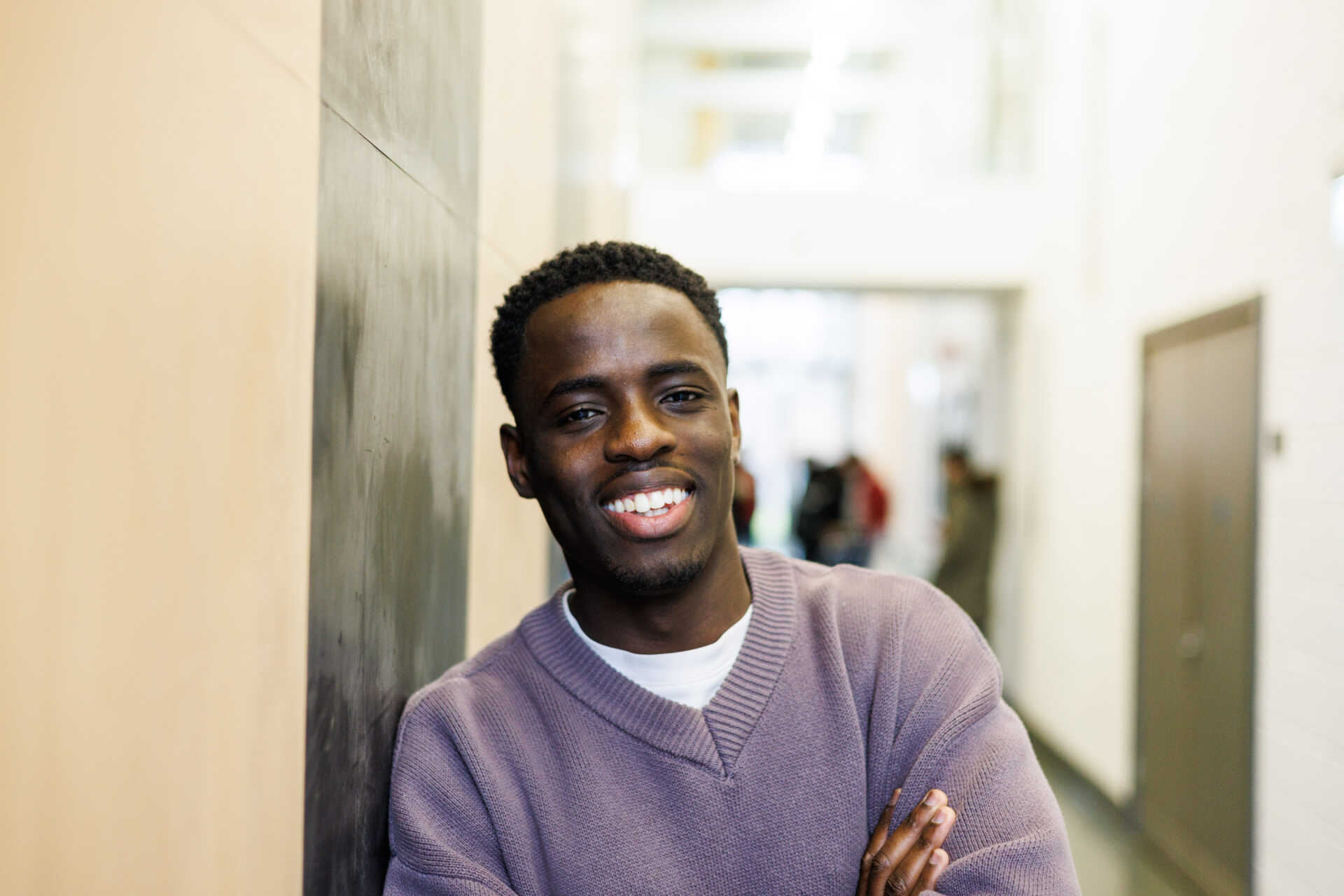
Studying at Kent has helped show a demonstrable passion for the industry.
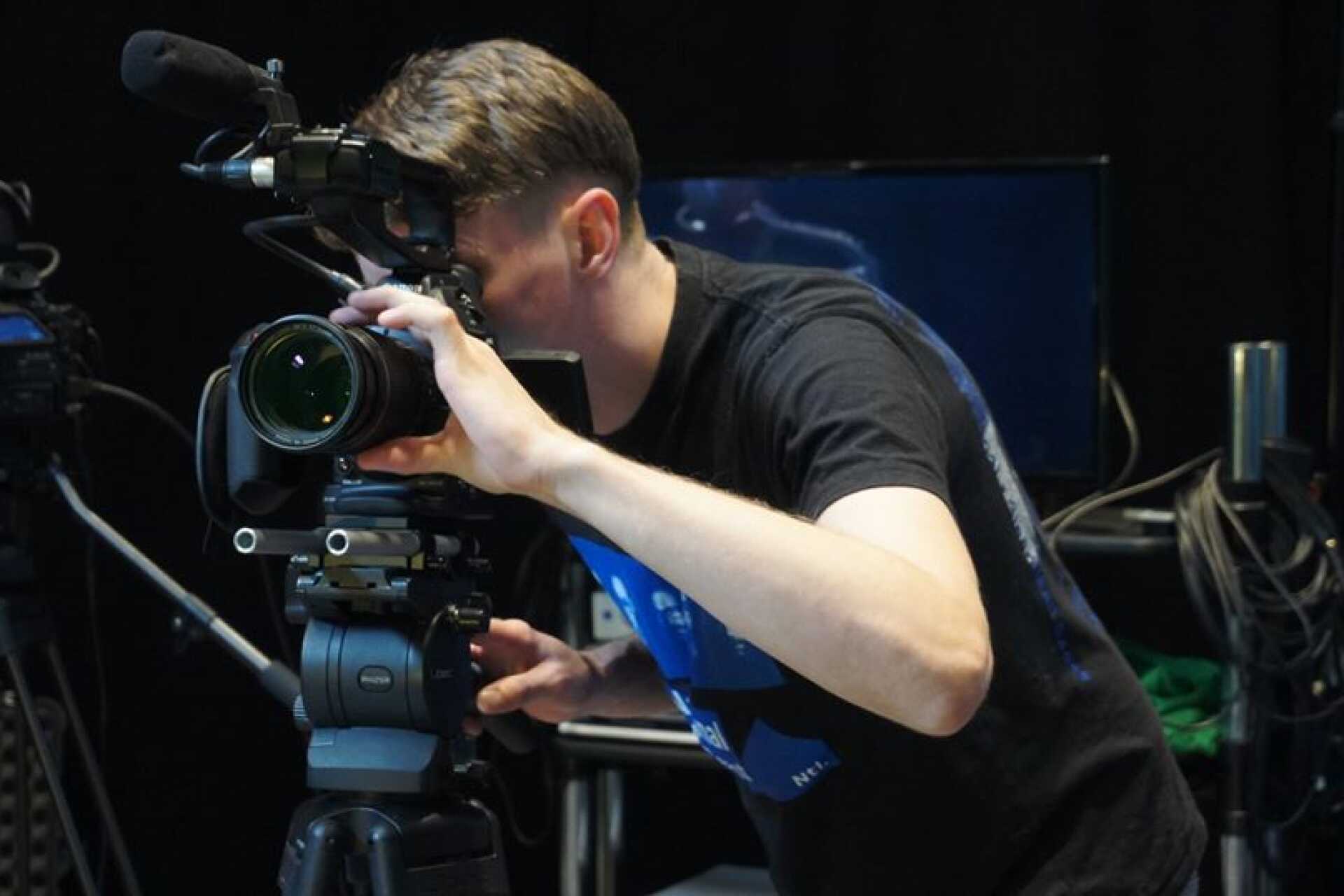
*The Government announced on 4 November 2024 that tuition fees in England for Home students will increase to £9,535 from £9,250 for the academic year 2025/26. This increase requires Parliamentary approval, which is expected to be given in early/mid 2025.
Tuition fees may be increased in the second and subsequent years of your course. Detailed information on possible future increases in tuition fees is contained in the Tuition Fees Increase Policy.
The University will assess your fee status as part of the application process. If you are uncertain about your fee status you may wish to seek advice from UKCISA before applying.
For details of when and how to pay fees and charges, please see our Student Finance Guide.
Fees for undergraduate students are £1,900.
Fees for undergraduate students are £1,430.
Students studying abroad for less than one academic year will pay full fees according to their fee status.
You will require regular access to a desktop computer/laptop with an internet connection to use the University of Kent’s online resources and systems. Please see information about the minimum computer requirements for study.
Find out more about accommodation and living costs, plus general additional costs that you may pay when studying at Kent.
Kent offers generous financial support schemes to assist eligible undergraduate students during their studies. See our funding page for more details.
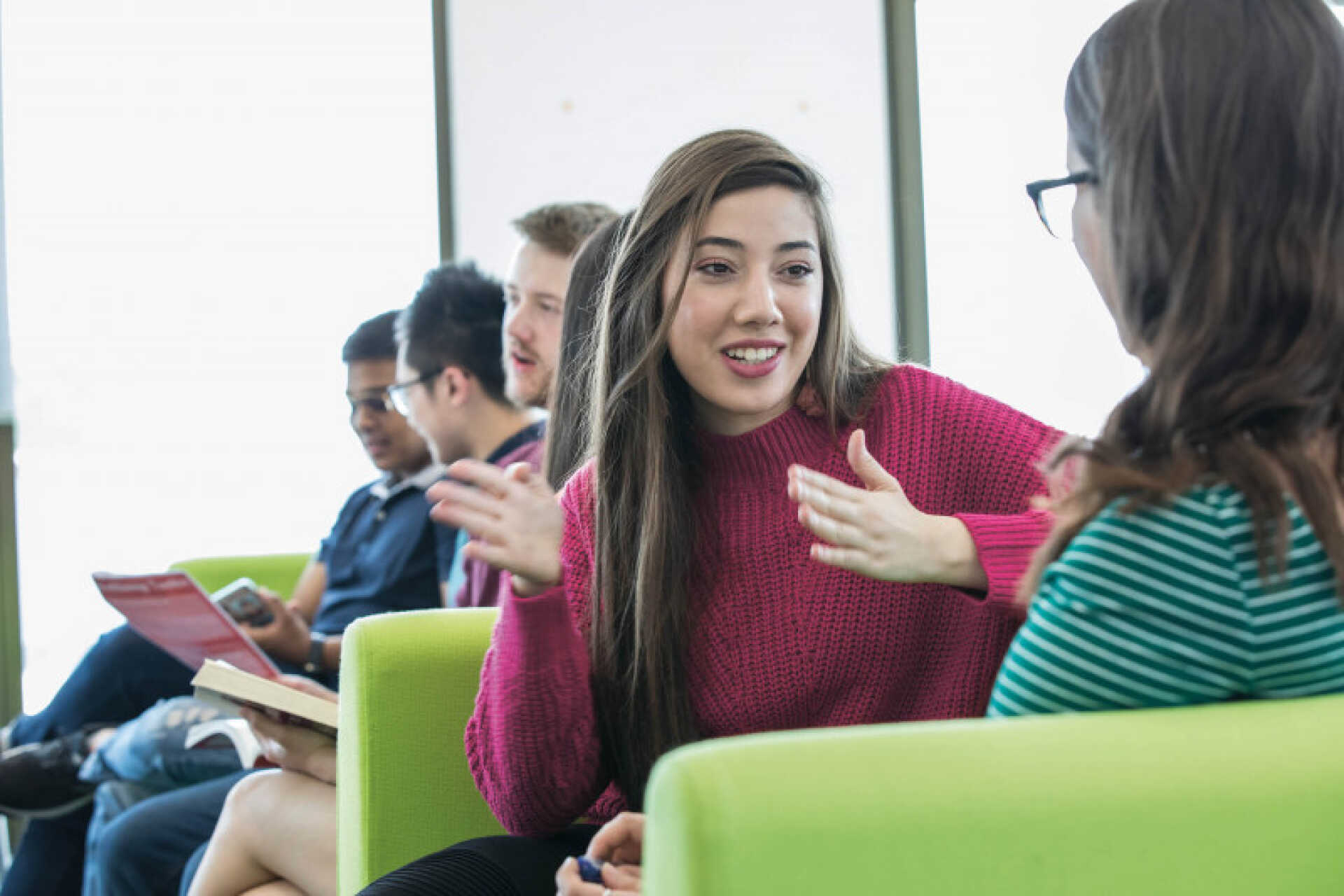
We have a range of subject-specific awards and scholarships for academic, sporting and musical achievement.
We welcome applications from students all around the world with a wide range of international qualifications.
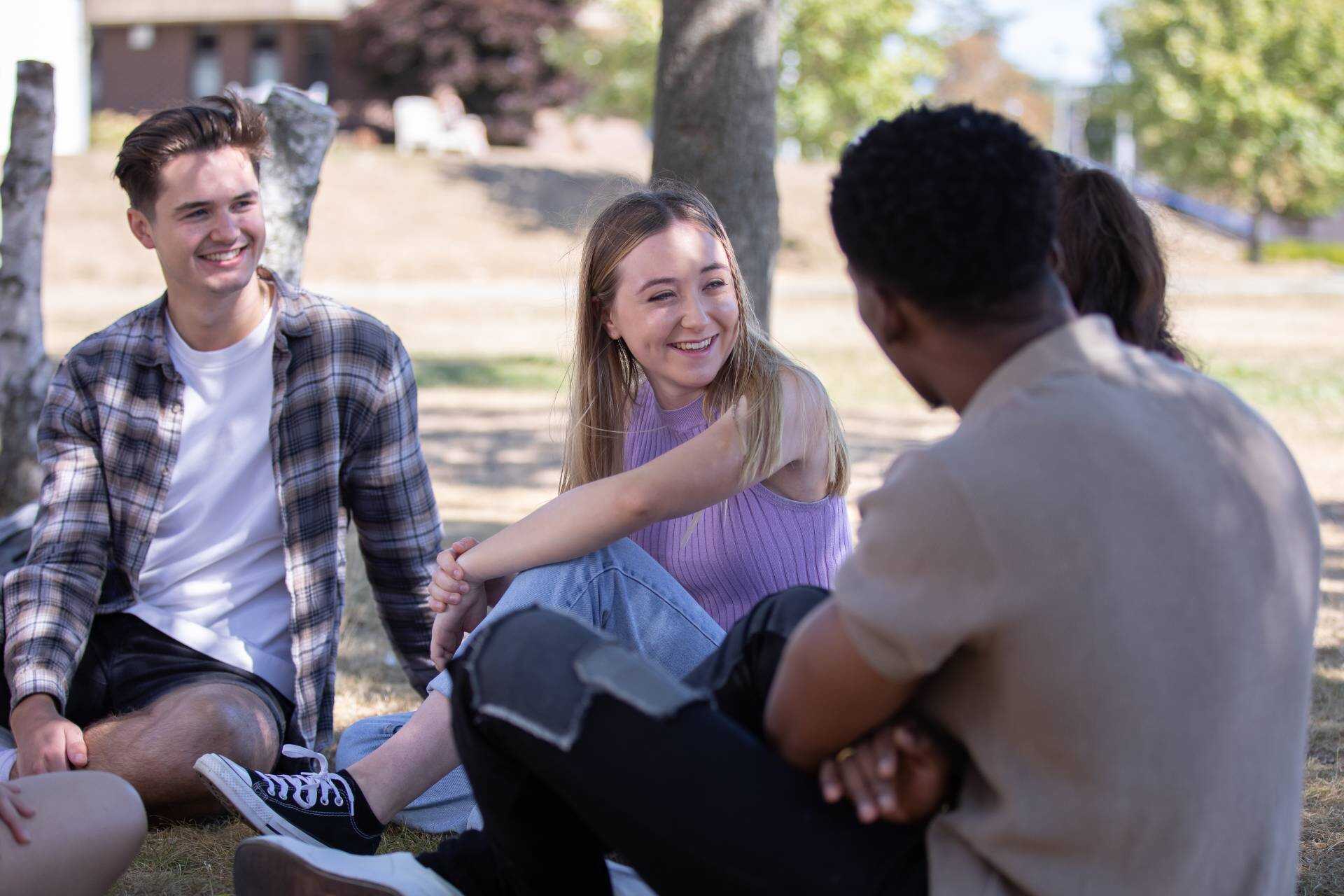
Student Life

Powered by progress
Kent has climbed 12 places to reach the top 40 in The Times Good University Guide 2025.
Kent Sport
Kent has risen 11 places in THE’s REF 2021 ranking, confirming us as a leading research university.

An unmissable part of your student experience.